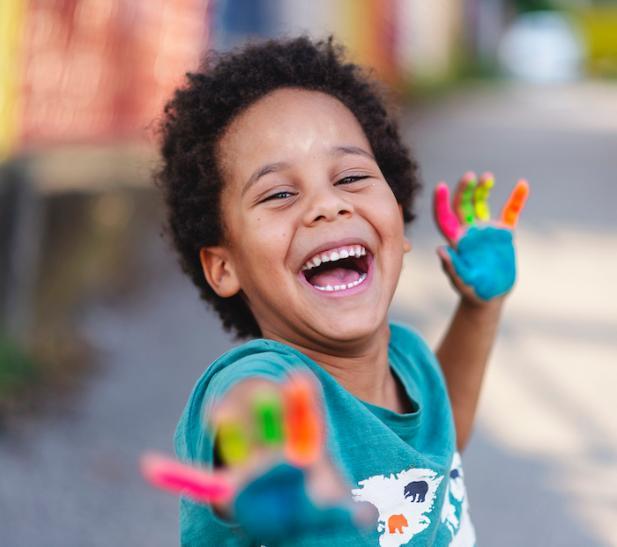Caregivers can help early learners thrive amid pandemic disruption

At the close of another year of learning disrupted by the COVID-19 pandemic, the stakes for preschoolers and their caregivers are particularly high. The years from birth to age 5 are essential to lifelong success and well being: social and emotional skills develop rapidly as infants and young children learn to communicate, express emotions and engage with the world around them. As the upended routines and forced isolation of the pandemic wind down and life begins to return to normal, caregivers can help ensure their child’s social and emotional learning stays on track. To build learning into each day, the experts at the University of Florida’s College of Education focus on what they call the “3R’s of Early Learning: Relationships, Repetition, Routines.”
“Regardless of the disruption caused by the pandemic, caregivers can continue to support their children's social and emotional wellbeing throughout changes that occur in their everyday activities and routines,” said Patricia Snyder, Ph.D., director of UF’s Anita Zucker Center for Excellence in Early Childhood Studies.
Experts from the center offer these tips, backed by the science of early childhood development and learning:
RELATIONSHIPS
- Encourage children to recognize, understand and manage their emotions
Talking about children’s feelings or expressing your feelings in age-appropriate ways helps them learn to recognize, understand, and express their own feelings and emotions, the Anita Zucker Center experts say. To support these expressions and help them learn how to identify positive and negative feelings in themselves or others, you can model appropriate responses by sharing your own. If you are frustrated at the end of the day, you can share, “It was a hard day! I'm feeling frustrated. I'm going to take a deep breath.” Back and forth exchanges between you and your child are the beginning of social and emotional development and learning.
- Help children learn to cooperate and get along with others
Playtime is a great opportunity for children to learn and practice social and emotional skills in a familiar context. A caregiver’s involvement in playtime helps build a positive, nurturing relationship and provides an opportunity to recognize learning opportunities. For example, if a preschooler is having trouble sharing with a sibling, act out what it looks like to play together using two dolls. You may act out your doll saying, “It’s my turn to play with the ball.” Let them know if what they did was helpful and ask them to show how they will play together with their sibling next time.
REPETITION
- Provide multiple opportunities to learn
Repeated positive exchanges during everyday routines can help children develop the foundational skills needed for future healthy relationships with peers, caregivers and other adults. For example, hearing a caregiver use a word repeatedly or having many opportunities to crawl toward a favorite toy or person helps children learn new skills or master ones they have learned.
ROUTINES
- Share what to expect during daily routines and activities
Sharing what to expect provides children with learning opportunities and prepares them to positively engage and experience these activities. For example, when taking a preschooler to story time at the library, say, “We are going to the library to listen to a story. We will sit with all the other children and their parents and use our listening ears and quiet voices. Can you show me what that looks like?”
With positive and nurturing relationships, opportunities for positive repetition, and predictable routines, caregivers can encourage young children’s social and emotional development and set them up for success in school and beyond.
